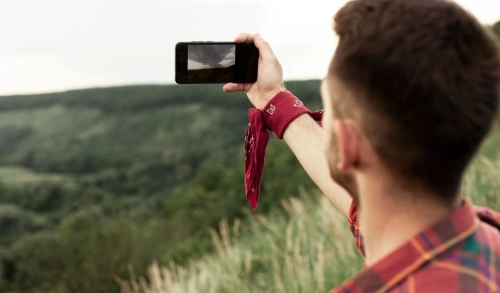
Here, we discuss how to tell your recovery story and when it might be the right time to do so. For those who’ve never been to an AA meeting before, there’s a misconception that you have to share your story. You shouldn’t go up and share your story if you don’t feel you’re ready to. It’s perfectly okay to come to these meetings and just listen to other people’s stories. Sharing your story helps to educate people about the truth and realities of addiction.
Help inspire others by sharing your story with us.
When sharing a personal recovery story, take accountability for things you did even when you weren’t in complete control. Understand what you regret and how you will do better going forward when you make a promise of responsibility to yourself. The truth is, not everyone feels comfortable sharing their recovery story or even think it’s necessary. Your recovery should come first, so when sharing your story, make sure you’re in a good place to do so without jeopardizing your safety. Talk to your therapist or counselor first to help ensure that you’re emotionally stable to open up about your struggle with addiction.
Recovery Stories and AA

Furthermore, sharing your experience with Never Alone Recovery’s incredible community often triggers an outpouring of support from peers who truly understand where you’ve been. By guiding others who are going through similar experiences as you, you become a bridge between individuals in need and the assistance that will transform their lives. By sharing the challenges you’ve overcome, the strategies that helped you overcome them, and the lessons you learned, those who are struggling may feel less scared, alone, and desperate. In turn, you’ll receive validation, empathy, and encouragement from individuals who have gone through similar experiences. Consider starting with an anecdote or the defining moment of your journey. From there, chronologically describe your personal experiences.
Highlight Your Strengths

Writing and sharing your story offers healing, growth, and hope for you and others struggling like you once did. By sharing your experiences and insights, you reclaim your narrative and contribute to someone’s journey toward addiction treatment and, ultimately, sobriety. The action of telling your story can help others that are struggling with substance abuse or mental health-related issues. A person may be feeling anxious about entering into treatment and knowing what to expect for the road ahead, but your story can bring them peace.
Advocacy vs. the Addiction Stigma
These stories serve as a reminder that recovery sharing your story in recovery is possible and that there is support available. It’s essential to recognize the advantages of social support and accountability during addiction recovery. Finding supportive relationships in the recovery community helps people navigate challenges, gain strength from shared experiences, and form a foundation for lasting sobriety. Alcoholics Anonymous (AA) is a program that helps individuals struggling with alcohol addiction. Storytelling plays an important role in supporting members’ sobriety. It gives individuals a chance to connect with others who share similar experiences.
Menu Block : Mental Health

The moment Helene’s impact became apparent, photographers fanned across the western part of the state to chronicle the storm’s impact. Gays of a certain era (and a penchant for daytime soaps) will never forget Jason Tam’s decade-long, heartthrob stint as Markko Rivera on One Live to Live. Theatergoers can now get up close and personal with Tam in one of his most unusual roles — the late senator in The Ghost of John McCain, now at Off-Broadway’s SoHo Playhouse. Join Gold Coast Health on social media as we create a more connected health community. Our mission is to transform how communities promote mental health in everyday life. With a focus on social emotional learning, the alternative high school environment helped students understand their own emotions as well as how their emotions impacted others.
- ” Even when we don’t realize it, it’s this type of thinking that perpetuates further isolation, when truly we all go through pain.
- Give yourself enough time to get everything off your chest, but don’t forget others need to share too.
- Identifying the different themes of your story helps bring focus to the topics you want to emphasize.
- In the addiction recovery world, storytelling is a good way to create bonds.
This is the crux of your story, the reason that you have chosen to tell it in the first place. If it were not for the improvements to your life that have been discovered in sobriety, there would be little point in telling your story in the first place. This is the light at the end of the tunnel, the part of your story that will leave your listeners feeling as if sobriety may benefit them as well. Let people know when you gave your life over to sobriety, and why. In many ways, you don’t have to stress too much about this section when trying to devise the best structure for telling your story.

While you are entitled to your privacy when it comes to this highly personal process, there is power in opening up and telling your story. Sharing your recovery story can be a step forward in your own personal healing. It also has a healing power for others who are still struggling to break free from addiction.
I moved from Dallas to Naples, Florida when I was fourteen years old. It was the biggest change of my life at the time and when I landed there I was nervous about not knowing anyone. Coming into recovery, we all needed hope and a reason to recover. The last thing anyone wants (or needs) is to re-live their trauma over and over.

Through storytelling, individuals affirm their progress while inspiring others. It creates connections between those in recovery communities, and fosters empathy, understanding, and support. Through this shared experience, individuals find strength in giving and receiving support on their journey. Sharing stories breaks addiction’s stigma and makes individuals agents of change.